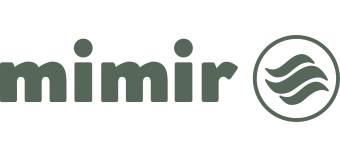
Jobs posted by Centrum Wiskunde & Informatica
Mimir provides the automated job management of jobs on job boards for Centrum Wiskunde & Informatica.
Latest jobs
PhD student on the subject of Robust Optimization (m/f/x)
The two PhD positions are within the scope of and funded by the NWO Vidi project “Robust Decisions with Wild Data”.
From providing mortgages to screening resumes, algorithms make important decisions for us on a daily basis based on vast amounts of data. They have recently come under scrutiny as they can be dangerously gullible in uncertain environments. Robust optimization promises certified protection against uncertainty, following the maxim "Plan for the worst, hope for the best." Robust decisions have proven more trustworthy when based on small curated data sets. Unfortunately, robust decisions, too, become gullible when using modern data sets scraped online typically outside of any stringent quality control.
In this project the idea is to advance direly needed decision methodologies ready for (i) the challenges associated with modern wild data sets and (ii) that offer certified performance beyond merely the worst case. As a PhD student you will look in particular at various data corruptions such as heavy-tail (“black swan”) outliers, and adversarial noise and or dynamically collected data. Dealing with outliers will require innovative mathematics on the interface between distributionally robust optimization and extreme value theory, and handling corrupted and dynamic data will require new ideas in robust statistics and anytime-valid statistics.
Robust optimization can be impractically conservative, as it fails to capitalize on opportunities when the worst case does not transpire, challenging the notion that it indeed does hope for the best. This project aims to explore alternative regret and learning with predictions formulations as viable alternatives to classical robust approaches. The aim of this project is to develop clever decision algorithms which protect against wild data and enjoy better typical performance beyond merely the worst case.
The final pillar of this project consists of designing practical optimization algorithms for state-of-the-art decision formulations.
Research Topics: Extreme value theory and heavy-tailed robustness (mathematical foundations). Anytime-valid statistics. Regret minimization, online learning, and learning-augmented algorithms. Optimization algorithms for distributionally robust and nonconvex problems.
AcademicTransfer
21 applications
0 views
27-01-2026 Centrum Wiskunde & Informatica
Senior Scientist Position for Outstanding Female Researchers
We are seeking applications from accomplished researchers at a level comparable to an Associate Professor, Full Professor or Chair. The ideal candidate will have a proven track record of high-impact research publications, a demonstrated ability to lead an independent research program, and a strong history of securing competitive research funding.
As a researcher at CWI, your primary focus will be on conducting innovative and excellent research. In addition, you will be expected to:
- lead independent research projects and contribute to or start new collaborative initiatives;
- secure competitive research funding through successful grant applications;
- contribute to education and talent development, typically dedicating around 10% of your time to such activities;
- strengthen CWI’s connections with the national and international science communities;
- engage in academic service and outreach activities, such as organizing conferences, research semester programmes, or other scientific and public events;
- contribute to the governance and administrator roles of the institute.
19-11-2025 Centrum Wiskunde & Informatica


